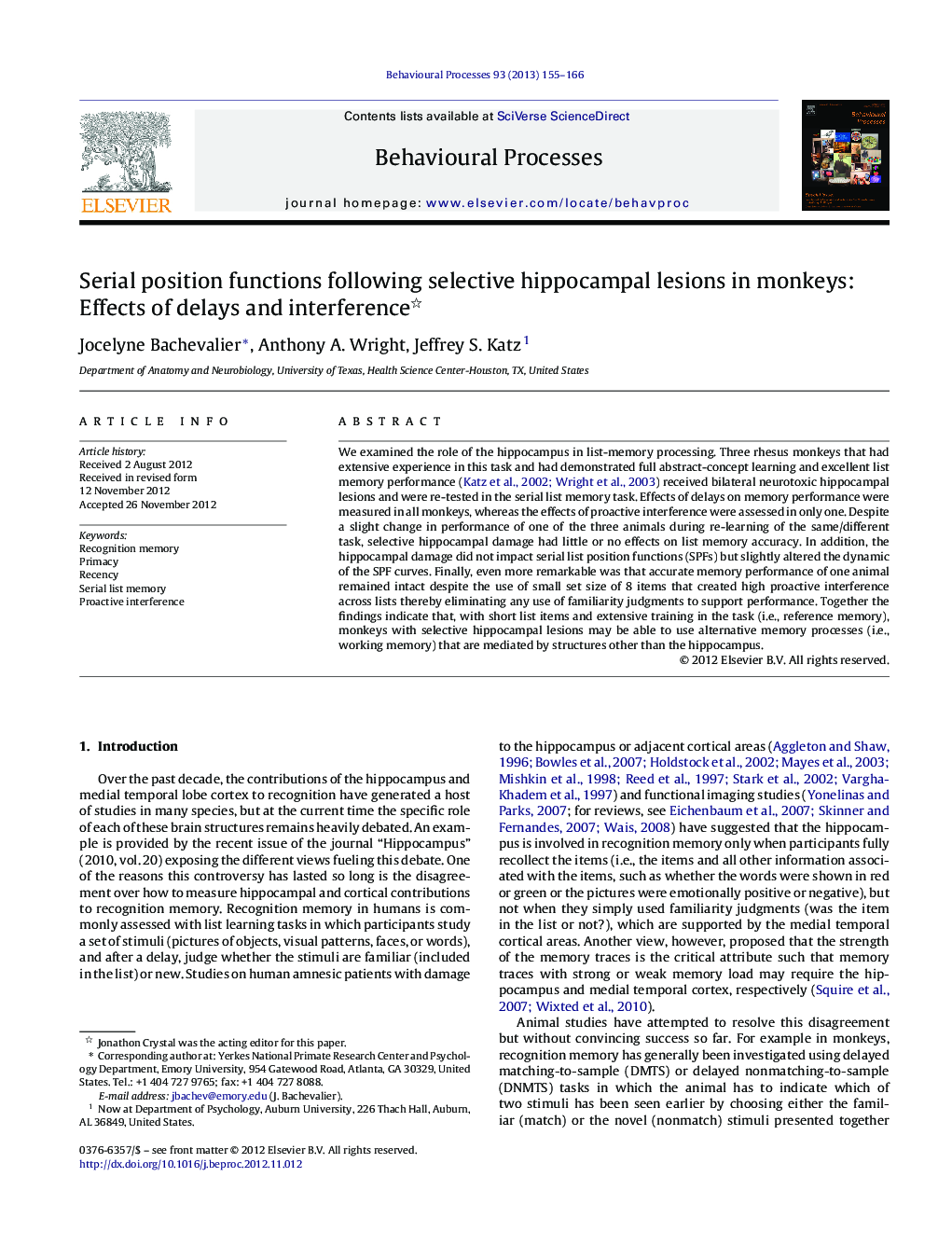| Article ID | Journal | Published Year | Pages | File Type |
|---|---|---|---|---|
| 2426879 | Behavioural Processes | 2013 | 12 Pages |
We examined the role of the hippocampus in list-memory processing. Three rhesus monkeys that had extensive experience in this task and had demonstrated full abstract-concept learning and excellent list memory performance (Katz et al., 2002 and Wright et al., 2003) received bilateral neurotoxic hippocampal lesions and were re-tested in the serial list memory task. Effects of delays on memory performance were measured in all monkeys, whereas the effects of proactive interference were assessed in only one. Despite a slight change in performance of one of the three animals during re-learning of the same/different task, selective hippocampal damage had little or no effects on list memory accuracy. In addition, the hippocampal damage did not impact serial list position functions (SPFs) but slightly altered the dynamic of the SPF curves. Finally, even more remarkable was that accurate memory performance of one animal remained intact despite the use of small set size of 8 items that created high proactive interference across lists thereby eliminating any use of familiarity judgments to support performance. Together the findings indicate that, with short list items and extensive training in the task (i.e., reference memory), monkeys with selective hippocampal lesions may be able to use alternative memory processes (i.e., working memory) that are mediated by structures other than the hippocampus.
► Hippocampal lesion did not impair performance at any stages. ► The findings do not support the role of the hippocampus in recognition memory. ► However, animals may have used alternate strategies not supported by the hippocampus.
